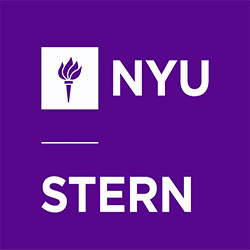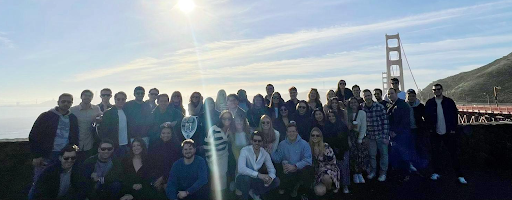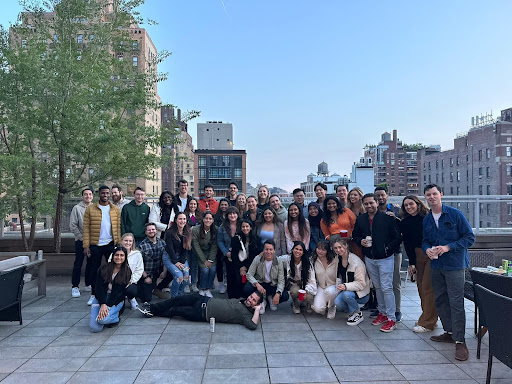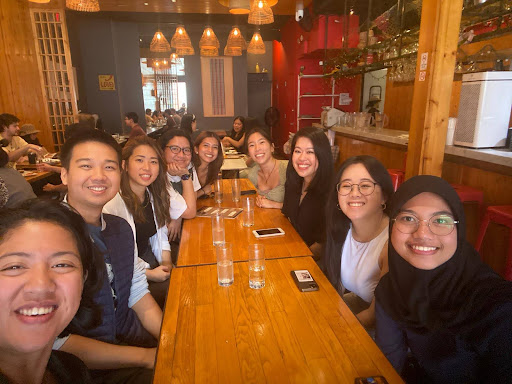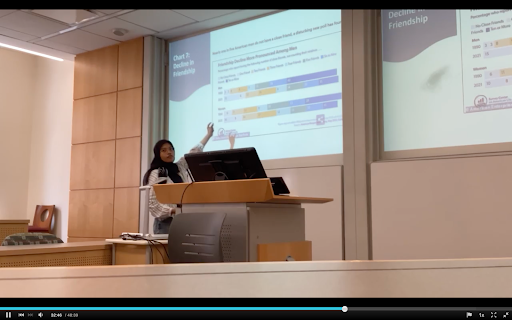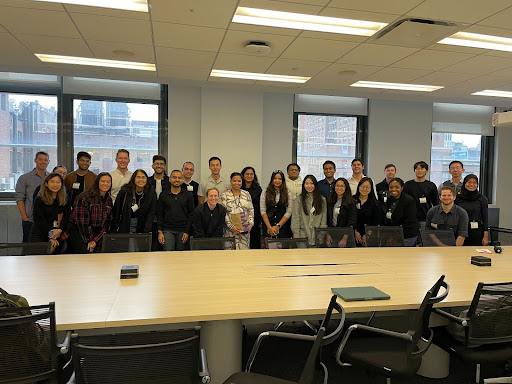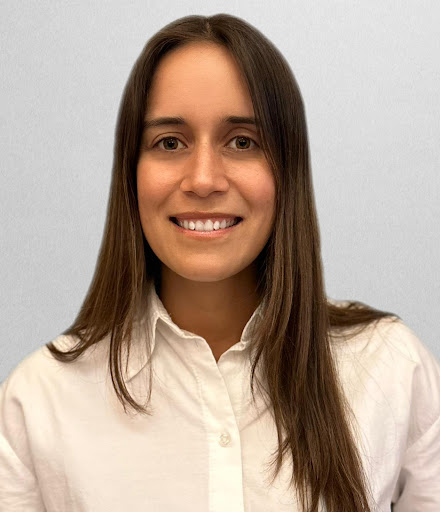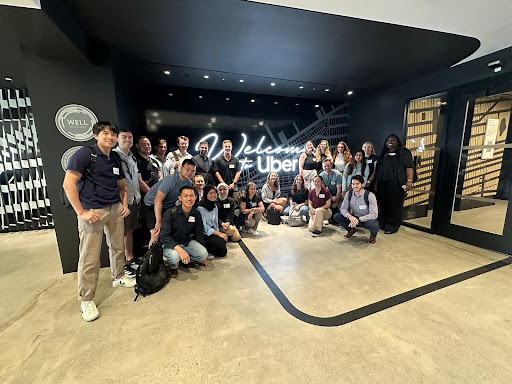Author: Scott is a full-time student pursuing a Tech MBA at NYU Stern. Prior to pursuing his MBA at NYU Stern, he worked in Technology Risk Consulting for 5+ years as a Manager in KPMG’s Technology Assurance practice. He managed a global portfolio of IT Assurance engagements and led a team of 10 associates in delivering IT SOX/SOC services, and automated compliance solutions to clients in the financial services industry.
Recruiting during a 1-year MBA is an interesting experience. Within one year you will leave your job, and transition back to student life, all while figuring out what you want to do for the next step in your career. On one hand you want to enjoy being a student and immerse yourself in the Tech-MBA experience; on the other hand, there is constant pressure in the background to recruit. Many students come to campus with an idea of their ‘dream job’ while others come in with a clean slate. There is no right or wrong way to do it, and everyone has their own unique recruiting journey. I will tell you a little bit about my recruiting experience, and I hope it helps you in your time as a Sternie!
What do I want to do?
When I arrived on campus last May, I had an idea of what I wanted to do post-MBA but I told myself that I should come in with an open mind. I would have told you on day 1 of the program that my short-term career goal was to land a job in Product Management for a Financial Services Institution or a FinTech company. Like many Tech MBA’s, I saw Product Management (PM) as a very interesting career path and it was definitely top of mind. I told myself to be open and to talk to as many alumni as I could to see if there were any other career paths that would interest me. One thing I would recommend all students do in the summer semester is set up as many coffee chats and speak with as many alumni as possible to get a feel for what a Tech MBA career looks like after graduating. Compared to the fall and spring semesters which can be very busy with recruiting, the summer semester is a time for you to explore opportunities and potential career paths. From talking to alumni in Product Management / Financial Services I remained very interested in a potential career as a PM but I also spoke to a couple of alums who were working in Sales/Business Development for Tech companies and this piqued my interest more than I had expected.
During the Summer semester you have the amazing opportunity to work with a real-world Technology client during Tech Solutions – lean into this. In my case I was paired with Salesforce and was able to work with them on building a product mockup and go-to-market strategy for a new Gen AI product. Throughout the experience with Salesforce, I realized that it was the client facing demos, storytelling, and sales / go-to-market pitches that got me the most excited about our product. While other students seemed to enjoy working with the product itself, it was really the storytelling that got me juiced up. One day after class a classmate came up to me and said ‘hey, have you ever considered software sales, I think you would be really good at it’, and this really got me thinking about a potential career in Tech Sales. I decided to go outside of the MBA and speak with some close friends and family who really knew me well, to seek their advice about Sales vs Product Management. The Stern network is amazing but never underestimate the power of your personal network, and the people in your life who have been your biggest supporters and cheerleaders. Lean on them as much as you can because in some ways – they may know you better than you know yourself.
After having some conversations with friends and family about potential career paths I started to realize that Business Development or Technical Sales might be a better fit for me than Product Management. I am a relationship-oriented person who loves working with customers, and from a personality standpoint I think sales is just a natural fit for me. This was not the easiest decision because Tech Sales is not the most traditional MBA path, and most of my classmates remained interested in PM jobs, but I decided to follow my gut and focus on the career path that I felt best aligned with my strengths. I urge you all to think about the things you are naturally good at and find the career path that best aligns with those innate skills. I knew that I would have to carve out my own recruiting journey, as many of the traditional Tech-MBA roles that recruit on campus are PM jobs, but I bet on myself and followed my gut. Find the career path where you think you can excel, and where you think you will be the most happy. It is YOUR MBA experience, so don’t worry too much about where your other classmates are recruiting, because everyone has their own path and ends up where they are meant to be.
Now that I know what I want to do… How do I recruit?
Okay get ready for some clichés in this section, but honestly these simple strategies really go a long way when it comes to recruiting. Remember that Stern will equip you with the resources and skills you need to approach your recruiting journey with confidence, but at the end of the day this is your responsibility. Throughout this entire MBA experience, you are betting on yourself. It is up to you to put yourself in the best position to be successful when it comes to recruiting. Here are some tips and tricks that helped me.
- Make a list of companies you would like to work for. For each company, list the job descriptions or titles that would potentially interest you. Whether it is from the Stern network or your personal network, list all the contacts you have at these companies and network, network, network. Oftentimes you can set up alerts on specific companies’ job sites for roles you are interested in.
- LinkedIn can be your best friend. For someone like me who was recruiting for jobs that were not posted on NYU Stern’s career portal (most of these were PM/Strategy jobs and not sales related), LinkedIn is an awesome resource. You can configure your LinkedIn to send you job updates for specific companies or job titles. I did this for my top companies and job titles such as Sales Engineer, Solutions Architect, Sales Enablement, and Sales Strategy. For those of you recruiting for nontraditional MBA roles like me, LinkedIn is going to be your best friend.
- Coffee Chats – don’t be afraid to reach out to alumni or former co-workers/friends to network. It feels awkward at first, but the Tech MBA Alumni network is amazing and, in my experience, they are always happy to help. Don’t be afraid to ask for a referral on the call, especially if you are recruiting for a sales role. End the call with a simple “thanks so much for your time I really appreciate it, just curious after getting to know me do you think I would be a good fit for your company or -insert role name here-?”. This will show confidence and will give the person you are speaking to an action item. Best case they say you would be a great fit and they’ll offer you a referral. Worst case they say no which is totally okay cause then you know that opportunity wasn’t meant for you anyways!
- Take advantage of your network – Full–Time MBA students and Part Time students are helpful resources. They have their own networks which they can connect you with, especially the part-time students who are out in the world working at some of the companies you may be interested in. A conversation with a Part Time MBA student in the Fall at a Stern Technology Association event was the conversation that eventually led to my Full-Time offer and the next step in my career. You never know which conversation is going to be THE conversation. Also never forget the power of your personal network, whether it is your high school friends, college friends, family, etc. It is easy to forget about the other networks you have when you are in the Stern bubble, but these can be just as helpful for your recruiting journey.
- Follow Up – It is so simple but send a personal follow up email every time you speak with someone while networking. Make this a habit. It is simple but it goes a long way.
Think outside the Box
If you are interested in working for a Tech company but don’t see yourself as a Product Manager or Technical Program Manager, remember that there are so many other positions at Tech companies. I accepted a job offer for a Sales Enablement position at a Tech company which was not necessarily on my radar when I began the program. It was only through committing myself to recruiting for roles in Tech Sales that I discovered Enablement which combines my passion for sales with my love of coaching and teaching others.
Embrace and take advantage of the fact that you are in New York City. I cannot think of a better place to be an MBA student, you are surrounded by hustle and opportunity. Think outside of the box when it comes to Tech recruiting and look for networking opportunities outside of Stern. I joined SENY (Sales Engineers of New York) which is a professional networking group, and I attended a couple of their events this year. Throughout the process I met some incredibly helpful people who were working in Technical Sales that went out of their way to help me during my recruiting journey.
Some parting advice – try to have fun with recruiting. It can and will be stressful – it was for me. But keep a positive attitude, because you wouldn’t be at Stern if you weren’t qualified for the amazing career that is waiting for you. Apply to jobs you don’t think you are qualified for, take risks, and carve out your own path. You will end up where you are supposed to be.
